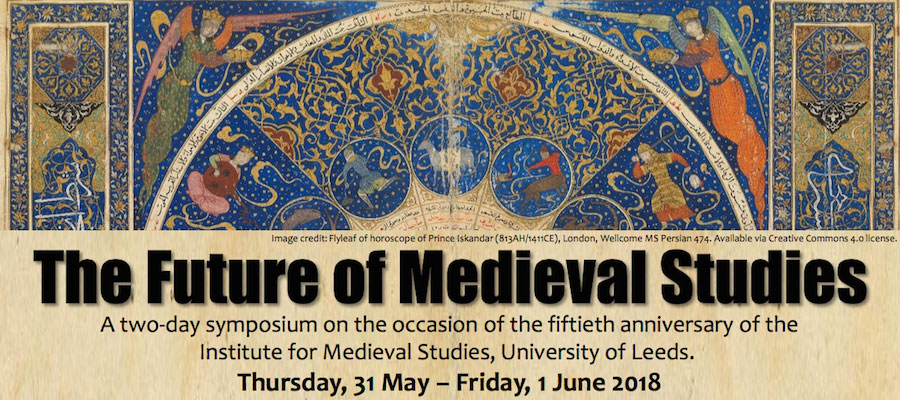The Future of Medieval Studies, University of Leeds, May 31–June 1, 2018
Medieval Studies has developed enormously over the last fifty years. This symposium marks the fiftieth anniversary of the Leeds Institute for Medieval Studies by exploring current developments in the field. Of particular importance for the future of Medieval Studies is how we can enrich and expand the themes of our research, the environments and methods of our research, and the diversity of researchers. How can Medieval Studies be made more engaged and better reflect the world of the present and the future (and should it)?
The symposium will explore three closely-connected topics:
The diversity of the Middle Ages
What were different medieval people's experiences of social and cultural diversity, in terms of factors such as race, class, ethnicity, gender, religion, ability, foreignness, and sexuality? How did these factors intersect? And how can perceived medieval experiences of homogeneity/diversity meaningfully be related to people's experiences of diversity today?
The diversity of Medieval Studies
How does Medieval Studies and its constituent disciplines investigate the diversity of the medieval past? What have been the major contributions to wider historiography and theory, and where is there room for development? What interdisciplinary methodologies are open to us to explore our research questions, or what challenges do we face? In what ways has Medieval Studies promoted or inhibited our understandings of social and cultural diversity?
The diversity of medievalists
How do the curators, researchers, students, teachers and re-enactors of Medieval Studies today reflect the diversity of our present societies? What ought our aspirations for diversity be, and what have been our successes and our failures? How does professional teaching, research, and public engagement reflect or shape the diversity of medievalists?
Rather than seeking papers in a traditional format, we invite proposals from individuals or groups to run hour-long sessions of participatory activities such as:
- Seminar-style discussions
- Focused analyses of primary evidence
- Several very short presentations (maximum of 5-10 mins) followed by discussion
- Developing policies/strategies for improving diversity
- Structured small-group activities
- Assessments of critical frameworks/methodologies
- Structured debates
